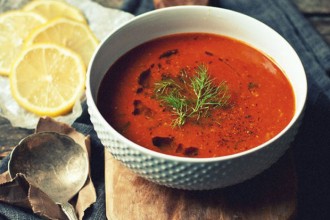They aren’t loaded with pesticides so you can spend your eco-friendly money elsewhere!
Asparagus
Asparagus face fewer threats from pests such as insects or disease, so fewer pesticides need to be used.
Look for firm spears with bright green or purplish compact tips. Plan on 200g per person, and for more uniform cooking, select spears of a similar thickness. Store in the refrigerator vegetable crisper and give them a good rinse before using (even if you´re going to boil them).
Avocados
Avocados have thick skins that protect the fruit from pesticide build-up. Look for avocados that are still somewhat unripe and firm to the squeeze; they´ll ripen nicely on your kitchen counter in a couple of days. Store at room temperature. Although you´ll be using only the meat of the avocado, it´s always a good idea to rinse them before you slice them open.
Tip: Store your bananas beside your avos, it helps them ripen quicker. Wrapping them in newspaper also helps.
Bananas
Pesticide residue remains on the banana peel, which isn´t eaten.
There are basically 3 stages to a ripening banana. You´ll want to choose them according to how you´re going to use them.
The green stage: the peel is pale yellow and the tips are green, their taste will be somewhat tart. These work best for frying or baking in a pie.
Chosen at their next stage of ripeness, where the peel is mostly all yellow, the pulp will still be firm but their starch content will have started to turn to sugar. These also work well in pies and tarts.
In the last stage of ripeness, the skins will show signs of brown spots with the peel a deeper yellow color. This is when they´re sweetest and work well mashed and added to baked goods like banana bread recipes. Store at room temperature. If they´re unripe, you can place them in a brown paper bag to ripen. Give the bananas a quick rinse and dry before you peel them.
Broccoli
Conventional broccoli doesn´t retain so many pesticides because the crop faces fewer pest threats, which means less spraying.
Look for tightly bunched flower buds on the broccoli stalks that are immature. In other words, try not to buy them if their little yellow flowers have opened. Color-wise, the broccoli should be deep green and the stalks should be firm and not rubbery. Before use, rinse thoroughly in cold water. Store in the refrigerator crisper.
Cabbage
Cabbage doesn´t hold on to so many pesticides because a ton of spraying isn´t required to grow it.
Look for cabbage heads whose leaves are tight and be sure the head is heavy for its type, and firm. For most cabbage varieties, you´ll want to make sure the outer leaves are shiny and crisp. Savoy is the exception to this rule, as it forms a looser head and the leaves grow crinkly naturally. You´ll want to avoid any with leaves that show signs of yellowing. Bok choy should have deep green leaves with their stems a crisp-looking white. Discard the outer leaves of a cabbage before using. You can wash and spin most cabbage leaves just like you do salad greens. Store in the refrigerator crisper.
Kiwi Fruit
Kiwi peel provides a barrier from pesticides. Give them a rinse before cutting.
Here´s where your nose plays an important part when choosing fresh fruit. Sniff out kiwis that smell good. They should be plump and yield to a squeeze like that of a ripe pear. Steer clear from those with moist areas on their surface or any skin bruising. If unripe kiwi are all that are available, simply take them home and place them in a paper bag at room temperature with other fruits that need more time, such as bananas or pears. Store in the refrigerator crisper.
Mango
Sweet mango flesh is protected by its thick skin from pesticides. Still, you´ll want to rinse under water before cutting open.
Depending on the variety of melon, look for those that are bright in color such as red, yellow, or orange. It should have a distinctive “fruity” smell. If there´s no ripe-fruit aroma, steer clear. Mangoes should be slightly firm but yield to your touch somewhat — the softer the mango, usually the sweeter it is. If the mango is too soft, there´s a good chance that it will be rotten inside. Store in the refrigerator crisper.
Onions
Onions don´t see as many pest threats, which means less pesticide spraying.
Look for onions that are firm, have a distinctive “oniony” smell that´s not overpowering, and show no visible signs of damage or soft spots. Store in a cool, dry place or in the refrigerator.
Papaya
Pesticide residue stays on papaya skin, but be sure to give them a wash before slicing open.
Papaya colors usually range between yellow and green. Look for those that are slightly soft and show no signs of bruising or appear shriveled. If they´re not fully ripened, you can toss them in the brown bag along with your unripened kiwi fruit, peaches, and pears. Once they´re ripened, store in the refrigerator crisper.
Pineapple
You won´t be eating the tough pineapple skin, which protects the fruit from pesticide residue. As with all your produce, you should rinse the pineapple before cutting.
Although tempting, this is one fruit that you won´t want to choose if it has a strong, sweet smell. This usually means that the pineapple is overripe and has even begun to ferment. Like all other fruits, avoid any that have soft spots, and in the case of pineapples, damage to the rind. Store in the refrigerator crisper.



